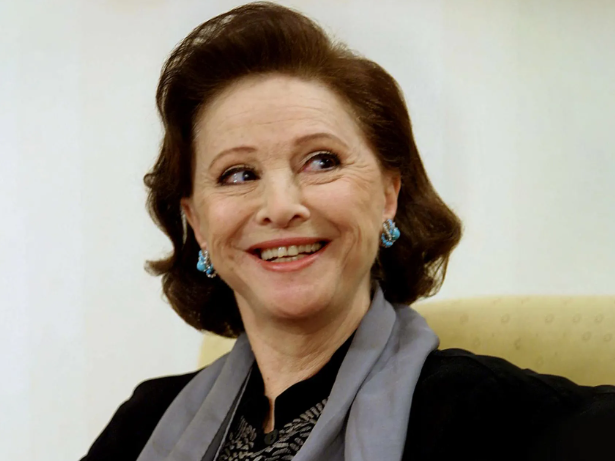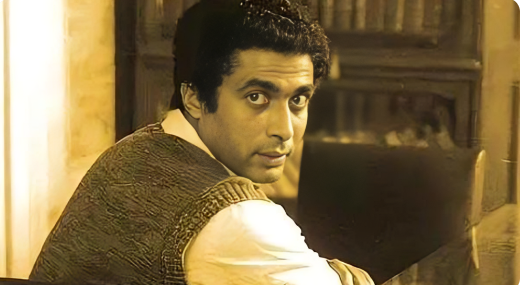Faten Hamama
Biography of Faten Hamama

- Name: Faten Hamama
Biography of Faten Hamama
Full Name: Faten Ahmed Hamama
Date of Birth: May 27, 1931
Place of Birth: Mansoura, Egypt
Date of Death: January 17, 2015
Profession: Actress
Nationality: Egyptian
Overview of Faten Hamama
Faten Hamama, nicknamed "The Lady of Arabic Screen," was one of the greatest actresses in Egyptian and Arab cinema. Her artistic career spanned over six decades, during which she presented a series of films that reflected the changes in Egyptian society and discussed many social and political issues, making her a symbol of the strong and elegant Egyptian woman.
Early Life and Education
Faten Hamama was born on May 27, 1931, in Mansoura, Egypt. She showed her talent for acting at an early age by winning a children's beauty contest, which attracted the attention of director Mohamed Karim, who played a pivotal role in discovering her. After appearing in the film "A Happy Day" in 1940 alongside musician Mohamed Abdel Wahab, she began her journey in the world of cinema.
She studied at the Cairo Institute of Acting, which helped refine her talent and professionalism in the arts. Her enrollment in the institute was an important step that enabled her to secure larger and more impactful roles in Egyptian cinema.
Artistic Career
1. Success in Egyptian Cinema
Faten Hamama began her artistic career in the 1940s with several films that received wide acclaim, but the 1950s and 1960s marked the golden age of her career, during which she presented timeless cinematic works. Some of her most famous films include:
- "Conflict in the Valley" (1954): She starred in this film alongside Omar Sharif, marking the beginning of a real romantic relationship between them.
- "The Call of the Curlew" (1959): Considered one of her greatest films, she delivered a remarkable dramatic performance inspired by a novel by the writer Taha Hussein.
- "The Forbidden" (1965): She played a poignant role reflecting the struggles of farmers and the poor classes in Egypt.
- "The Empire of Maim" (1972): This film solidified her status as a model for the ideal mother in Egyptian cinema.
2. Social and Political Films
Faten Hamama distinguished herself by presenting roles that addressed the issues of Egyptian society, particularly those related to women and their rights. Her films reflected the reality of Egyptian women across different time periods and contributed to stimulating discussions on women's rights and equality.
3. Collaboration with Major Directors
Faten Hamama worked with many of the most renowned directors in Egyptian cinema, including Youssef Chahine, Salah Abu Seif, Henri Barakat, and Kamal El Sheikh, which added another dimension to her artistic performance and made her films achieve great successes.
Personal Life
In 1955, Faten Hamama married the international actor Omar Sharif after they co-starred in several films together. They were one of the most famous couples in the artistic community, but their marriage ended in divorce in the early 1970s. Before her marriage to Omar Sharif, Faten Hamama was married to director Az El-Din Zou El-Fikar, with whom she had a son named Tarek.
After her divorce from Omar Sharif, she married Dr. Mohamed Abdel Wahab, a well-known physician, and they lived a quiet life away from the spotlight.
Awards and Honors
Throughout her artistic career, Faten Hamama received many awards and honors, both locally and internationally, in recognition of her immense talent and outstanding artistic contributions. Among these awards are:
- Best Actress in various Egyptian and international festivals.
- Medal of Excellence from President Gamal Abdel Nasser.
- Honors at the Cairo International Film Festival.
- Awarded the title of "Lady of the Arabic Screen" in recognition of her significant contributions to cinema.
Artistic Legacy
Faten Hamama is considered one of the most important figures in the history of Egyptian and Arab cinema, being a symbol of authenticity, elegance, and impeccable acting. Her roles embodied the image of a strong and aware woman and contributed to changing the stereotypical image of women in Egyptian society.
Even after her death on January 17, 2015, Faten Hamama's films continue to be screened and enjoyed by new generations, confirming her lasting impact on the world of cinema.
Conclusion
Faten Hamama left an indelible mark on the world of art and cinema, and her works and roles will remain a lasting expression of the issues and concerns of Egyptian society. Her role in the development of Egyptian cinema is a significant contribution to enhancing Egypt's position in the world of football, and her legacy lives on in the minds of the game's fans.




